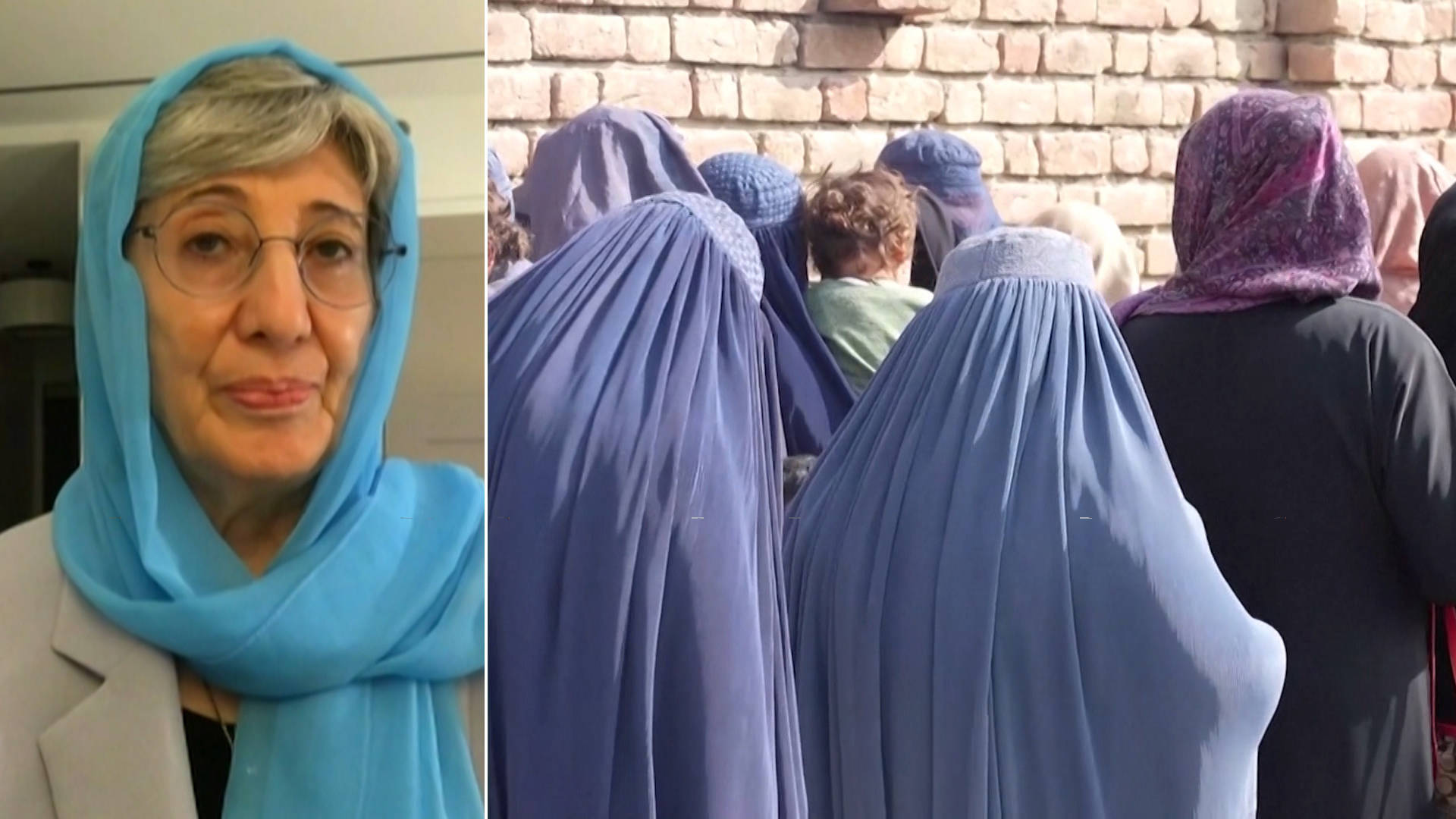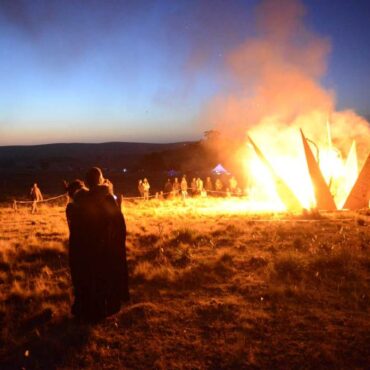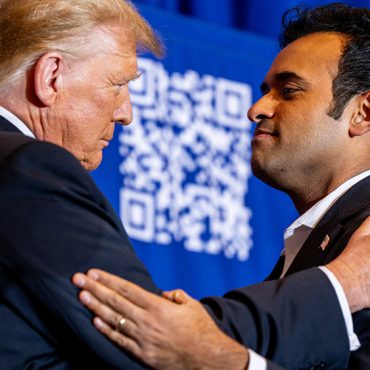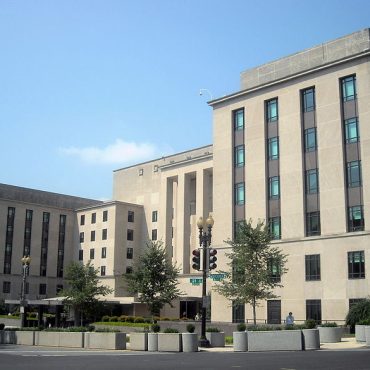This is a rush transcript. Copy may not be in its final form.
AMY GOODMAN: This is Democracy Now!, democracynow.org, The War and Peace Report. I’m Amy Goodman, with Nermeen Shaikh.
NERMEEN SHAIKH: In Afghanistan, the Taliban has approved a wide-ranging law that forces women to completely cover their bodies, including their faces, and remain silent in public. The law will be enforced by the morality police, who work under the Ministry for the Propagation of Virtue and the Prevention of Vice. The law codifies many rules that have been in place since the Taliban returned to power three years ago. The law has been widely condemned. This is Ravina Shamdasani, spokesperson for the Office of the U.N. High Commissioner for Human Rights.
RAVINA SHAMDASANI: These are partners who are being completely silenced, and they’re attempting to render them into shadows. Their voices are no longer permissible. Education is no longer permissible. You cannot even see their faces. This needs to stop, and we need to continue talking about it. We need to continue advocating for it and putting pressure on the authorities to listen.
NERMEEN SHAIKH: Afghan women have been defying the Taliban’s edicts in videos posted on social media or shared with human rights groups. This woman living inside Afghanistan concealed her identity as she recorded herself singing, “You have silenced my voice until further notice. You have imprisoned me in my home for the crime of being a woman.”
AFGHAN WOMAN: [translated] [singing] You have silenced my voice until further notice. You have imprisoned me in my home for the crime of being a woman.
AMY GOODMAN: For more, we’re joined by Sima Samar, an Afghan human rights advocate and medical doctor. She was chairperson of the Afghanistan Independent Human Rights Commission from 2002 to 2019. She also briefly served as minister of women’s affairs in the Afghan interim government in 2002. In 2012, she was awarded the Right Livelihood Award in recognition of her work on women’s rights. She’s now a visiting scholar at Tufts University. Her memoir, published earlier this year, titled Outspoken: My Fight for Freedom and Human Rights in Afghanistan.
Sima Samar, welcome back to Democracy Now! How sad, ironic, that your book is called Outspoken, when the Taliban have now said women cannot speak in public. Can you respond, exactly what this law is and what it means?
DR. SIMA SAMAR: Thank you so much, Amy. It’s nice to be on your show. Thank you for having me here.
Yes, I think this law further restricts all the rights that the women had. They already put a lot of restriction on women’s rights. They were not able to go get education. They were not able to work outside of the house. They were not able to travel alone without male mahram. They were not able to walk with open faces. But, I mean, still, the Afghan women were resisting all those. But this law further restricts the rights and freedom of all the people, but particularly the women. They cannot even raise their voice, even if they recite Qur’an. You cannot see such a law in any other regime on this planet. So, I think it is the full isolation, systematic erase of women from public life. And as we call it, it’s gender apartheid. I think with this law, they completed gender apartheid.
I don’t know why the people around us, the international community, do not see this. And it also was a reaction to the endorsement of the Taliban in Doha 3, because, if you remember, Doha 3 was the meeting earlier, six weeks ago, in Doha with the Taliban, in a prize that they brought the Taliban spokesperson and representative in Doha to meet with all the representatives of the international communities. And the United Nations organized this, and they refused to add the civil society and women’s groups to the main meeting. After a lot of pressure we just put on the U.N., they said, OK, at the end of the actual meeting, they will see some people from civil society. So, this was a policy trying to normalize the Taliban. So this law is a reaction and an answer to the normalization of the United Nations and some other countries who tries to say that the Taliban are the reality of Afghanistan.
And I would say, yes, the Taliban are the reality of Afghanistan, but millions and millions of people and women in Afghanistan is also reality. And this is a crime against humanity. It is gender apartheid. You don’t have any other name. I’m sorry, I heard the news about the Middle East. What I see, it’s the continuation of culture of impunity everywhere, including in Afghanistan.
NERMEEN SHAIKH: Dr. Samar, if you could also just comment — you mentioned gender apartheid, which is, of course, what many are saying the Taliban have created, a state of gender apartheid in Afghanistan. But what’s your sense of how other people, ordinary Afghans, are responding to these measures? A recent survey found that almost 70% want women’s rights to be a central, important feature of the focus of the government. If you could respond?
DR. SIMA SAMAR: Yeah, actually, they have a regime of fear and oppression. They treat people with the gunpoint. That’s why they are so violent, and nobody has a law, and nobody is accountable. So that’s why the people are not getting out of the house or protesting against this. I keep saying that it is not the problem of the women, actually, in Afghanistan; it is the problem of every household.
What the people could say and do, I think they have to stand more strongly and use their civil rights and start protesting against this inhuman, un-Islamic and against all the international law and principles and against all the obligation of Afghanistan towards all these conventions of human rights, and the violation, clear violation, of Universal Declaration of Human Rights, because, practically, their voice cannot heard by any man who is not related, maybe including the in-laws. I mean, practically, it’s a new style of slavery, in my view.
AMY GOODMAN: Sima Samar, if you can explain — I just want to say, you were head of the Ministry of Women’s Affairs very briefly. The Ministry for Women has now been changed into the Ministry for the Propagation of Virtue and Prevention of Vice. The new law, the new decree, includes women must veil themselves in front of all men, even in front of non-Muslim women. It also permits brutal physical punishment, beating, intimidation, imprisonment without due process. Where do you see this all going right now?
DR. SIMA SAMAR: I think they want to show their actual opinion, because there were some people advocating for the Taliban, that they are changed, they learned from their past mistakes. But I think it is really the responsibility not only of the Afghan people — of course, we have more responsibility that the others — to raise awareness about the situation in Afghanistan and to make a serious — to look serious. I think it’s not only the problem in Afghanistan. It’s going to spread in the other countries, particularly on the regional countries. We already see sign of this kind of behavior and empowerment of patriarchy in the region. So, again, if we just watch —
AMY GOODMAN: Who is financially backing the Taliban?
DR. SIMA SAMAR: Unfortunately, everybody, because they get some money — this is — I don’t know the exact number or amount. They’re getting money from different intelligence services, claiming that they’re fighting against Daesh. In a month — every week, there is $40 million going to Afghanistan in order to keep the economy running —
AMY GOODMAN: Claiming that they’re fighting against ISIS, you mean?
DR. SIMA SAMAR: Yes, yes. And so, that is really — and they also have contracting, get a lot of money from the mining in Afghanistan. And they push different kind of — put different kind of taxes on people. Even the taxes not really has a rule. The inspector police, or this Sharia inspector, what they call it, the muhtasib, they call it, they have the right to punish the people and take as much as they have to pay.
AMY GOODMAN: Sell, Sima —
DR. SIMA SAMAR: So, the shopkeepers, the people who — the farmers, it’s not — unfortunately, the environment is too bad, and the people doesn’t have a lot of income from their farming. And they have to —
AMY GOODMAN: Well, Sima, we have to leave it there, but we thank you so much for being with us, and, of course, we’ll continue to follow this issue. Sima Samar, Afghan human rights advocate, medical doctor, chair of the Afghanistan Independent Human Rights Commission from 2002 to 2019, briefly served as minister of women’s affairs in the interim government of Afghanistan in 2002, was awarded the Right Livelihood Award for recognition of her work with women’s rights, now at Tufts University. Her memoir is called Outspoken: My Fight for Freedom and Human Rights in Afghanistan.
Next up, Russia continues its largest aerial assault since the invasion as Ukrainian forces push deeper into Russia. We’ll be back in 30 seconds.
[break]
AMY GOODMAN: Afghan women singing in protest of the Taliban’s newly approved law that forces women to completely cover their bodies, including their faces, and remain silent in public.











Post comments (0)